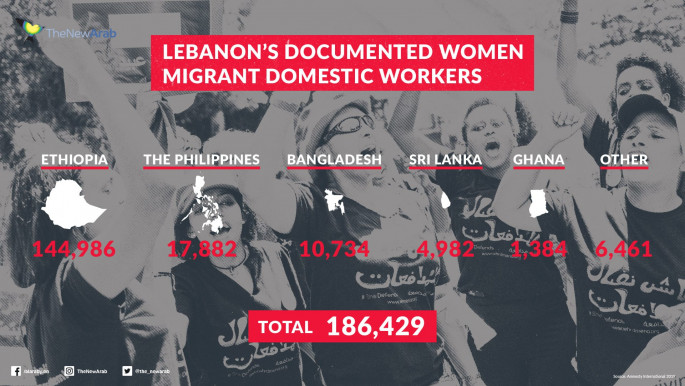 |
Agencies contributed to this report.
Follow us on Facebook, Twitter and Instagram to stay connected
|
"These women are among the most marginalised people in society, and are bearing the brunt of the economic crisis which was exacerbated by Covid-19," said Heba Morayef, Amnesty International's MENA Regional Director.
"The Lebanese government cannot ignore their plight. Under the kafala system, not only are their rights restricted but their lives are endangered as well, particularly as reports of abuse in the home have increased during confinement," she added.
Morayef called on the Lebanese authorities to investigate the crisis and stop it from escalating further, saying they must immediately provide accommodation, food, medical care and other support to migrant workers who have lost their jobs.
Amnesty also called for the Lebanese government to set up a labour inspection unit to monitor working conditions of migrant domestic workers, as well as a fast-tracked dispute mechanism so workers can claim their unpaid salaries and request to be repatriated.
An estimated 250,000 domestic workers live in Lebanon, around 150,000 of which are Ethiopian, according to government figures. However, thousands more are estimated to be in the country undocumented.
There is also reportedly a lack of space for them to quarantine in Addis Ababa, a precaution enacted by Ethiopia due to the coronavirus epidemic.
The system dictates that unhappy workers are unable to resign without their employer's permission, while their visa and other rights are terminated once they lose their jobs, leading many to liken it to modern-day slavery.